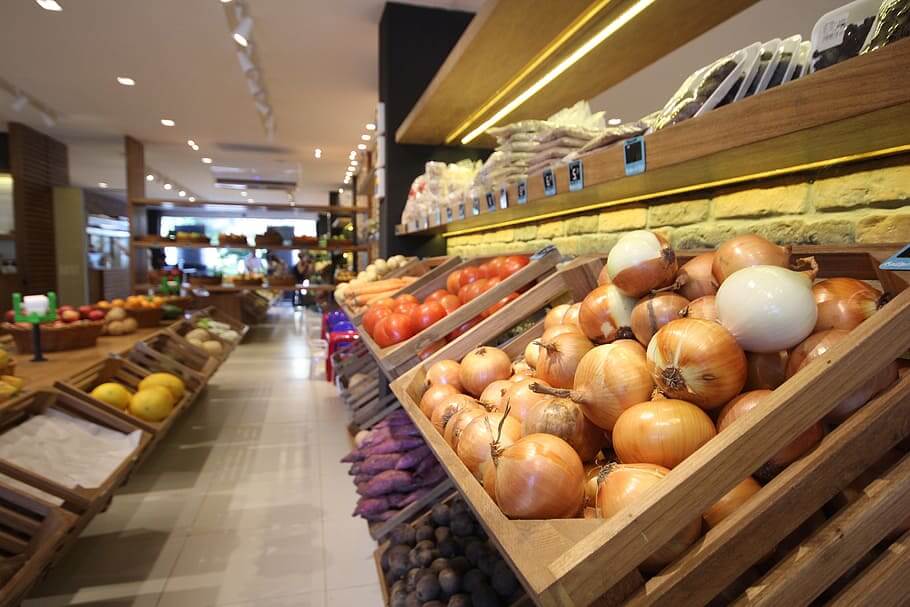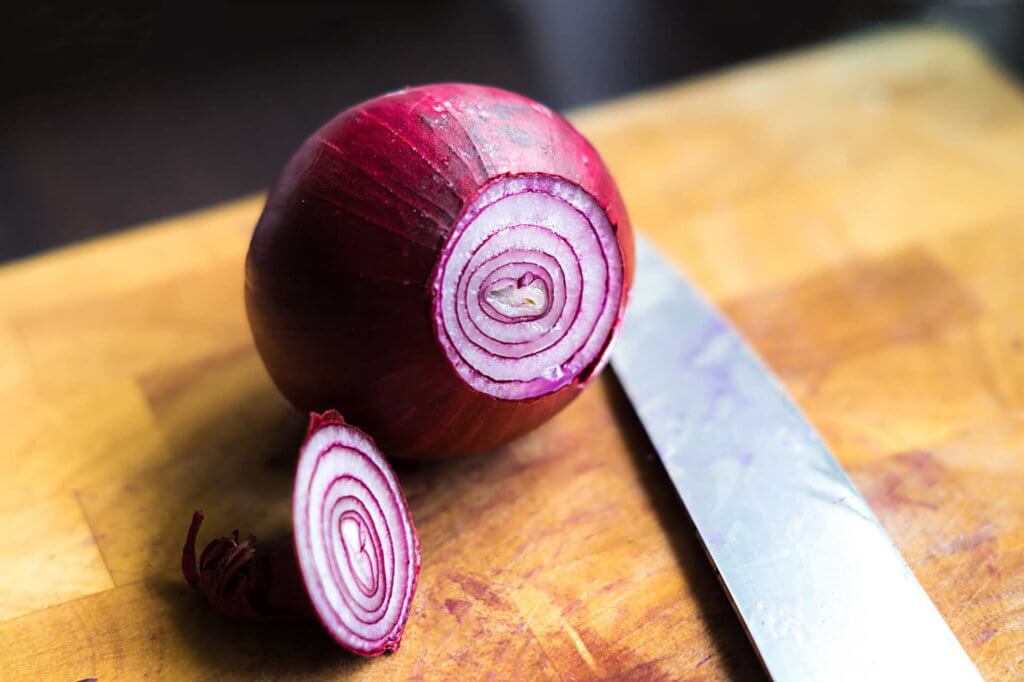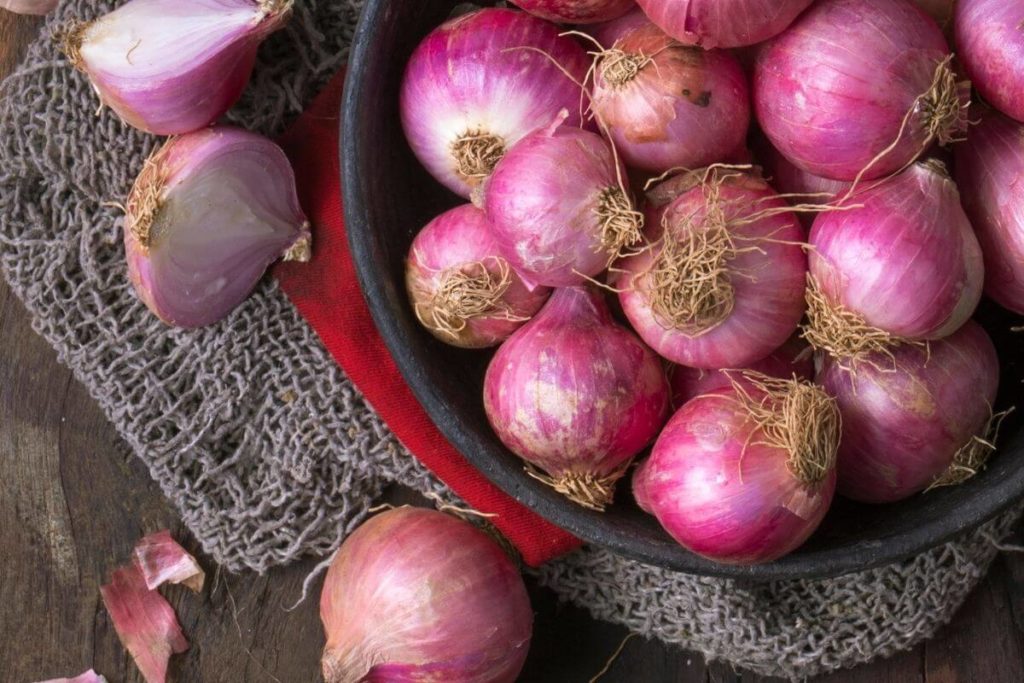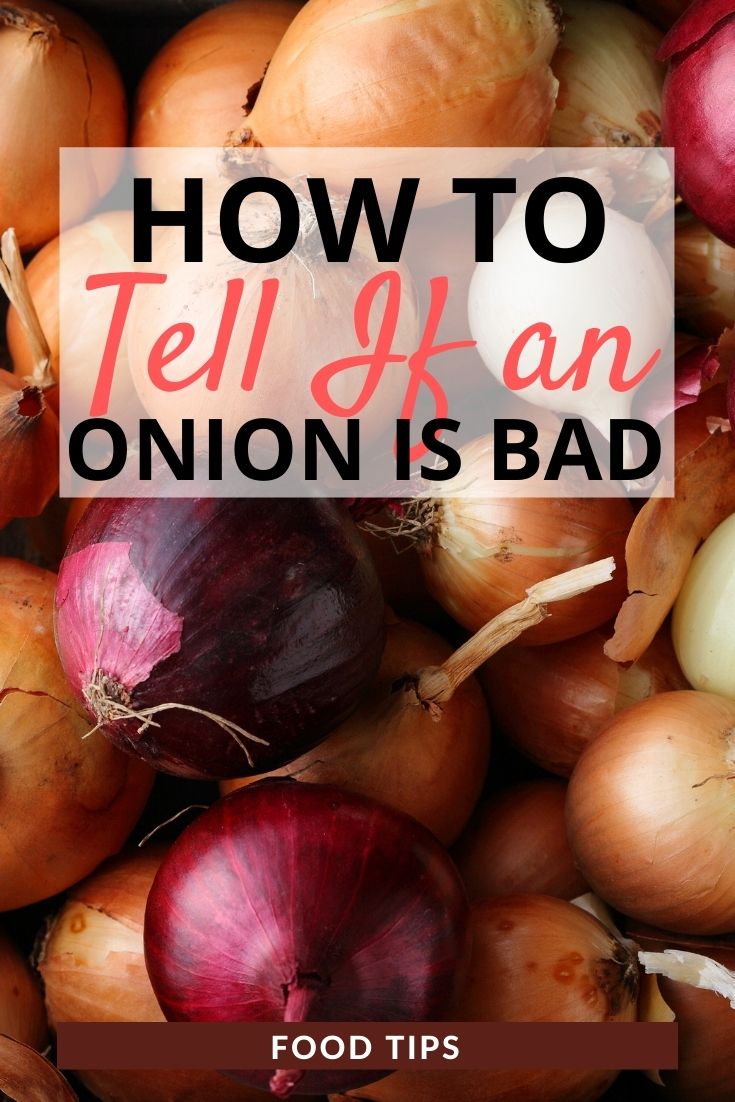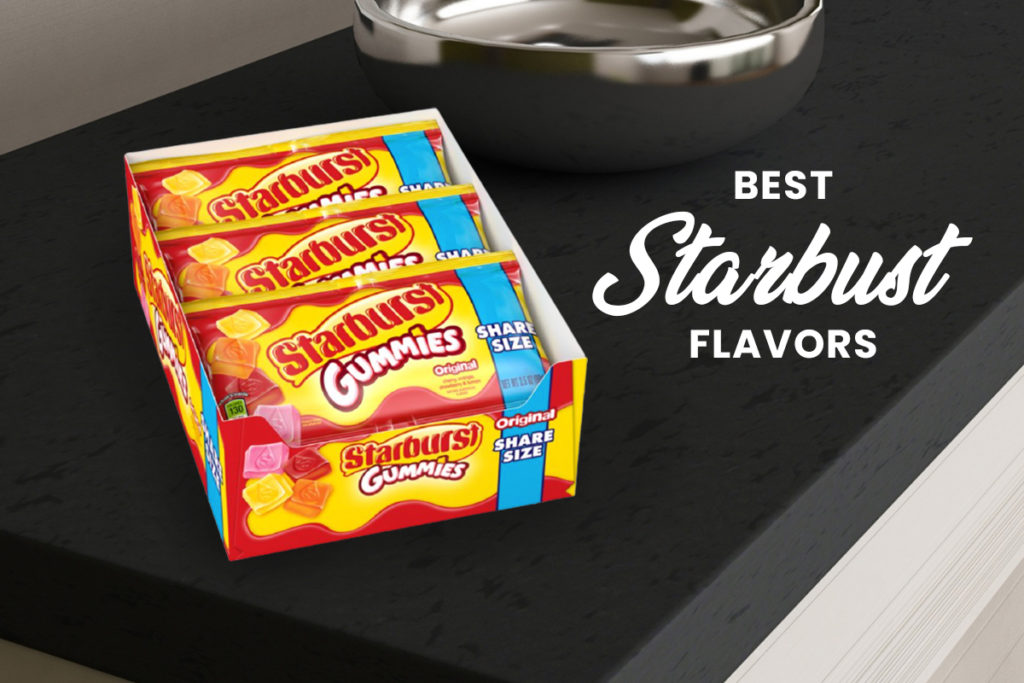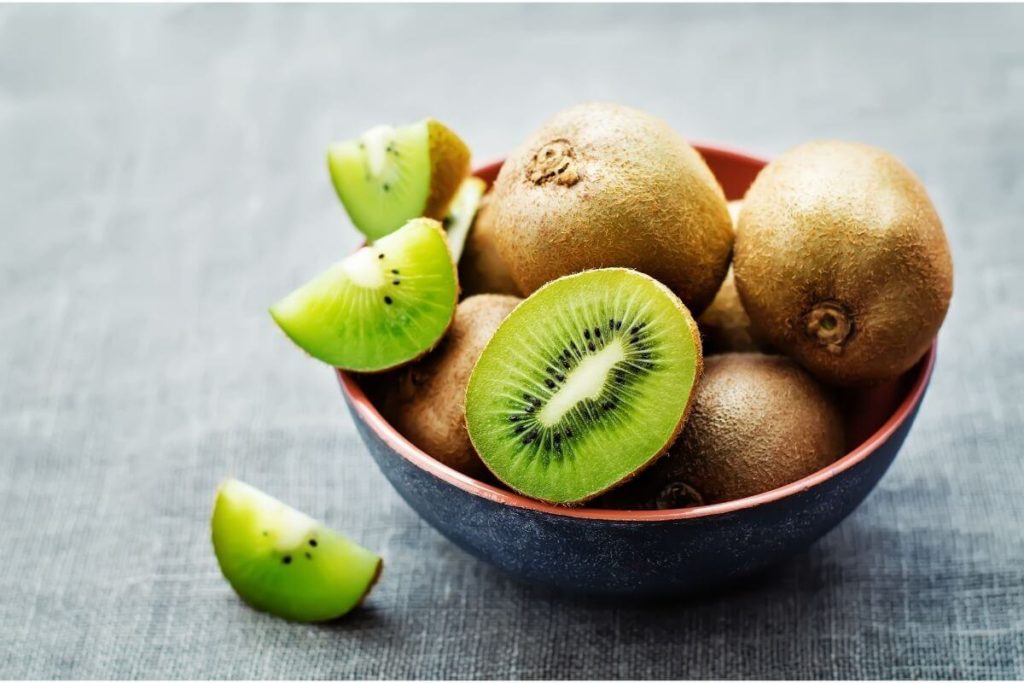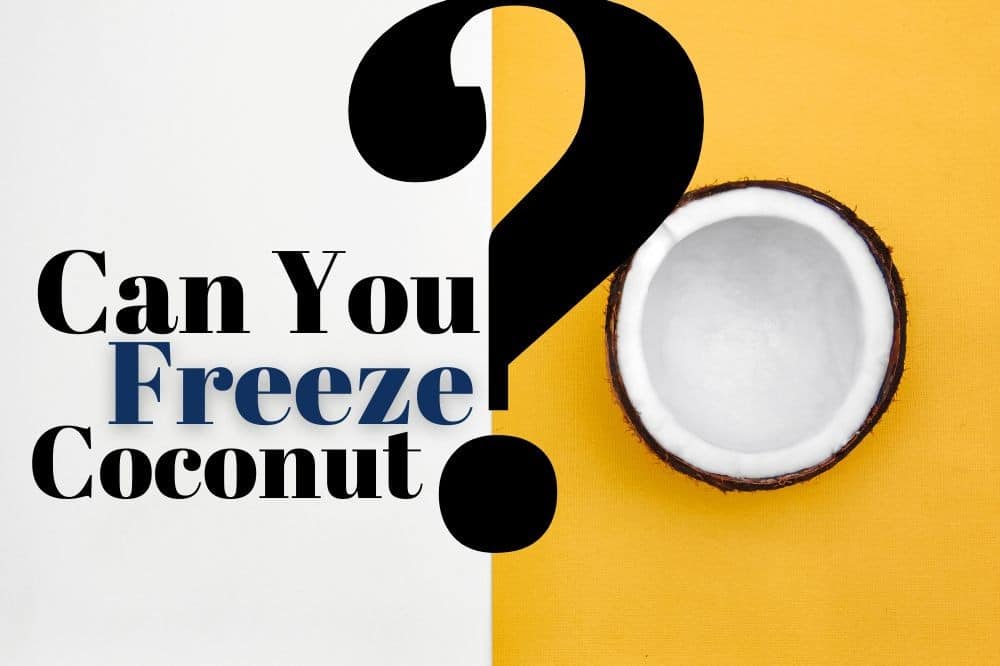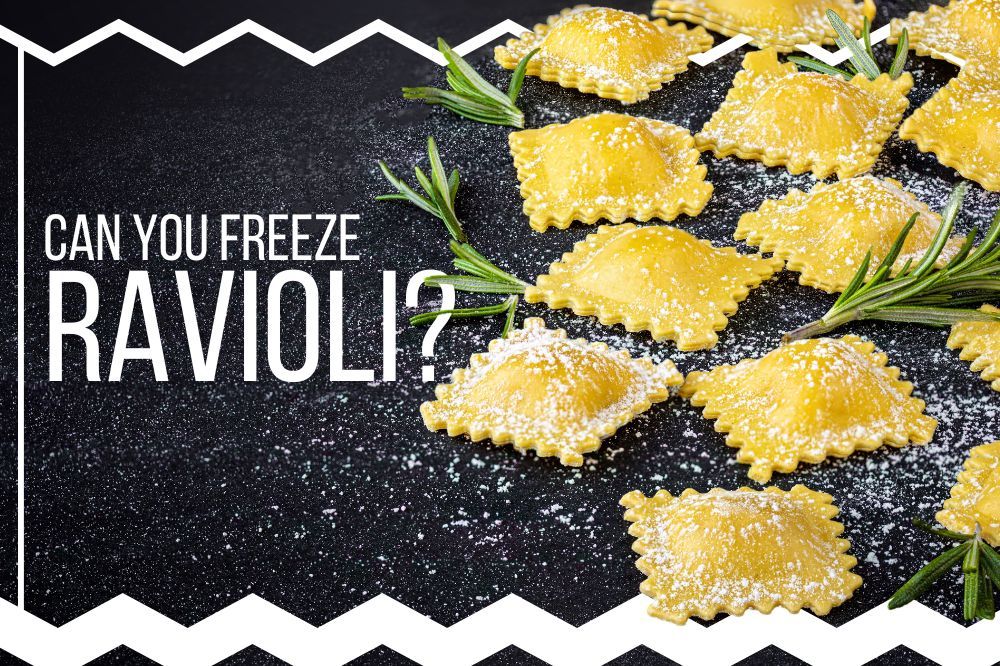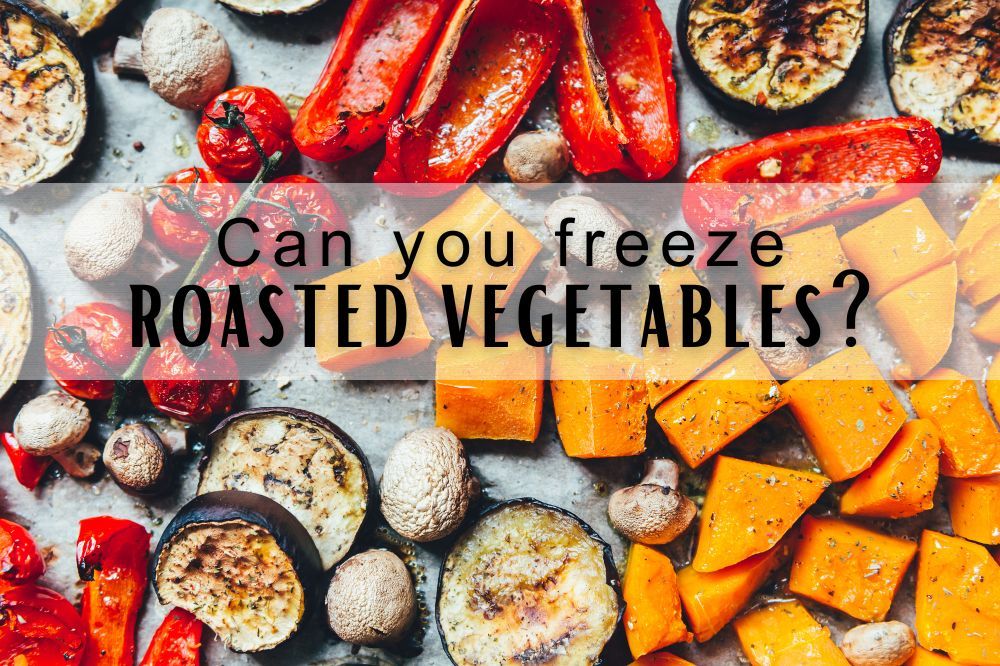How to Tell If an Onion Is Bad (Updated 2024)
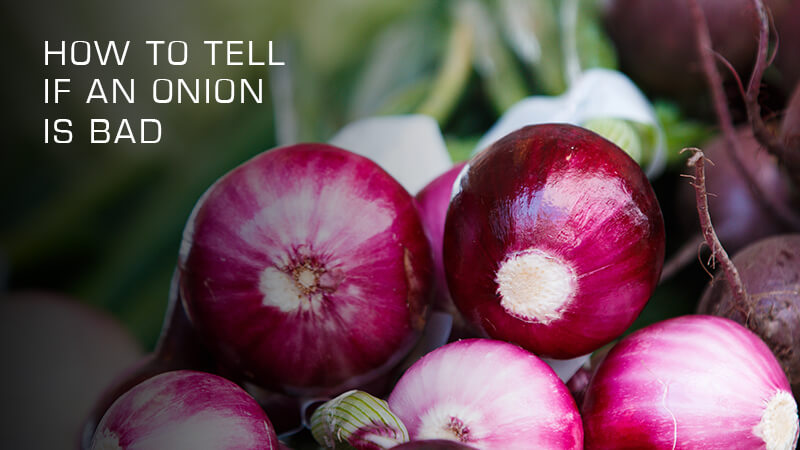
Want to learn how to tell if an onion is bad? Learn how in this article. Going grocery shopping can be enjoyable but also overwhelming and time-consuming. This is why many people choose to buy their groceries in bulk.
This way, they can save time and money by going on a single trip and stocking up for a few days, or even weeks. Moreover, wholesale prices are much better than buying per piece.
However, one downside of buying in bulk is that there is always a risk of the items going bad, especially fresh produce such as onions.
This ingredient is an essential one, especially for those who enjoy making home-cooked meals every day. Yet, some avoid buying onions wholesale because they worry that the bulbs might go bad after being stored for a long time.
Well, good news because you can easily tell if a bulb is going bad or is already bad. Wondering what you should do? Here are some essential things you need to know about onions:
How to Tell If an Onion Has Gone Bad
Let’s start by talking about how to tell whether a bulb is bad or not. To do this, you only need to use your senses. Here’s what you need to do:
-
Smell the onion
When checking up on bulbs that have been in your pantry for a long time, the most obvious sign that the product is no longer good is its smell. Onions are aromatics that have strong smells even when good, so it is no surprise that they can emit offensive and pungent odors when rotten. A decayed or putrid smell will be present if the bulbs are bad.
-
Conduct a visual inspection
A good onion will appear firm and without brown and black spots. Usually, spots are caused by bruises on the bulb’s flesh. Just remember that the darkening of the outer appearance does not necessarily mean that the produce is bad.
-
Touch the bulb
If you cannot tell by the smell and appearance, you can touch the produce to see if it has flesh damage. Usually, such damage can be observed in the form of soft and slimy textures. However, remember that these ingredients have many layers, so it is possible that only the first few have disintegrated.
To see if the whole bulb is bad, give it a little squeeze. Keep in mind that healthy bulbs are firm. However, if it feels soft and spongy on the inside, it may have gone bad.
Shelf Life of Onions
When talking about the state of the freshness of an onion, you need to know an onion’s shelf life. Did you know that onions can stay in your pantry for 4 to 6 weeks? This means that you can keep stocks good for more than a month.
If you are looking for ways to extend their life span, the best thing to do is to keep them inside the refrigerator. With this technique, you can keep your onions good for 1 to 2 months.
Another great way to extend the shelf life of these vegetables is by freezing them. This lets you have a supply of healthy bulbs for 6 to 9 months.
Those who are wondering what to do when they have already cut up the bulbs should know that refrigeration is their best friend. In fact, chopped onions can last for 1 to 2 days on the counter or for 1 to 2 weeks in the fridge.
How to Properly Store Onions
Now that you know the life span of this vegetable, based on the storage method used to keep them, it is important to note that there are techniques to properly store onions. Proper storage can help you preserve the freshness of the produce and ensure that it is safe to use when the time comes. Check out these tips below:
-
Keep away from sunlight and moisture
If you are planning to store them on the counter or in the pantry, remember that heat and humidity can affect their freshness. This is why you should find a dark and dry place to store your bulbs. The best way to do this is to place them in a cabinet corner or hang them anywhere as long as they are not exposed to moisture and sunlight.
-
Remove those that are starting to go bad
Before you store your onions, make sure to conduct a cursory inspection to see if there are pieces that are starting to rot. Remember, the bacteria that cause decay easily spreads from one vegetable to another. This extra step helps you save good onions from going bad just because they contracted bacteria from a rotting bulb.
-
Store in an airy container
As mentioned, onions can easily go bad when exposed to moisture. This is why they always come in mesh containers, as well as plastic and paper bags with holes.
Such airy containers are the best for pantry storage because they let moisture evaporate, unlike airtight ones which trap moisture. However, tightly sealed containers are best if you are storing whole and chopped onions in the fridge.
Some Necessary Warnings
While you may be glad to have found ways to properly store your produce and effectively extend its shelf life, there are some things you should know about such techniques. Below are the things you should look out for:
-
Your containers can smell of onions for a long time
Placing onions in containers and storing them in the refrigerator or freezer is definitely effective in preserving them. However, keep in mind that the smell of onions can stick to containers for a long, long while. So if you do not like getting such strong aromas on your favorite storage containers, then find others to use.
-
Freezing can affect flavor and aroma
Freezing can give life to your bulbs for more than 5 months, but remember that this can greatly reduce the potency of your aromatics. Frozen bulbs can have a bland taste and less aromatic flavor, so be ready to use more than you normally would.
-
Browning and slimy textures are not always bad
If you have been keeping your onions in your pantry for a while now, you may notice some discoloration and change in texture. This can be alarming, but remember that this does not necessarily mean that the entire bulb has gone bad. In some cases, you can simply peel away the affected layers and use the remaining good ones.
-
Do not get bulbs with sprouts
When shopping for onions, watch out for bulbs with sprouts. Healthy and freshly harvested onions are free from any green, leafy shoots. Having such growth means that it has been sitting on the store’s shelf long enough to grow leaves. So, while an onion with sprouts can still look fresh, keep in mind that it has already spent a fraction of its shelf life at the grocery, which means that it will have a shorter life span in your pantry.
-
Bruised bulbs are no good
One of the main reasons why some bulbs go bad faster than others is because they sustained bruises on their flesh. This could be during transportation from the farm to the grocery or due to mishandling by other shoppers.
Conclusion
Having a complete pantry means that you need to stock up on essential ingredients such as onions. With this simple guide, you can easily tell if an onion has gone bad and store your fresh produce in an efficient and effective manner.
you may also like
well hello there!

Hi, I'm Linda thanks for stopping by! We're so happy you're here. If you're a foodie and love to cook from home - you're in the right place..
LEARN MORE
free newsletter
Join the mailing list and receive our free newsletter!
recent posts
let's be social
search site
Recipe Marker
Recipe Marker provides you with the best information about home cooking tips, recipes, ingredient substitutes and more. Check out our blog to see the latest articles.
Copyright © 2024 Recipemarker.com | All Rights Reserved | Privacy | Disclaimer | Contact
